The 12 Best Education Articles From June: Our Year Inside America’s Premiere Teacher Mentoring Program, US News Reboots Rankings, the Power of Classroom Relationships & More
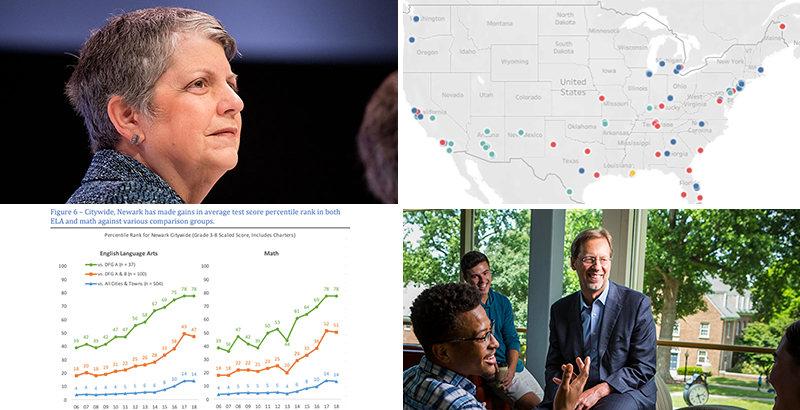
Every month, we round up our most popular and buzzed-about articles from the past four weeks. (Go deeper: See our top highlights from May, April and beyond right here)
It was a month of detailed and impactful longreads here at The 74, from a new report on the Trump administration’s changes to Title IX enforcement to a yearlong observation of America’s top teacher mentoring program and an in-depth profile of Aspen Institute CEO Dan Porterfield, who has a long track record of helping high school graduates from low-income families thrive in college. More details on the month’s most buzzed-about stories below. (You can always get our top news and analysis delivered straight to your inbox by signing up for The 74 Newsletter.)
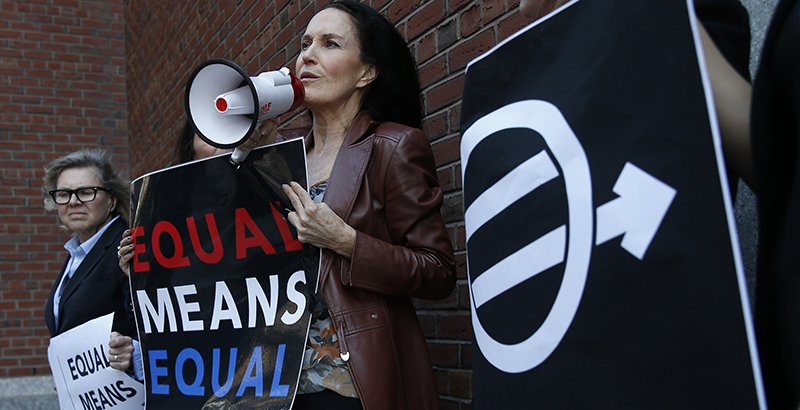
Investigation: Experts are warning that new Title IX regulations will raise the bar for federal involvement — and spur an onslaught of lawsuits. One of the most significant changes under the Trump administration’s proposed Title IX regulations has both schools and victims advocates worried, and it hasn’t gotten much attention. Tucked within the proposed regulations is a provision that would raise the bar for how badly a school has to mishandle a sexual misconduct case in order for the U.S. Department of Education to find it in violation of Title IX. The proposed rule would also narrow the definition of sexual harassment, raise the evidentiary standard for finding accused students guilty and restrict administrators to investigating only certain incidents, like assaults that happen on campus. The result: Schools will have fewer Title IX cases on their plate. And the proposal gives administrators several steps that, if taken, will protect them from being found in violation of the law. Taken together, this means that federal investigations will become less frequent, and Secretary Betsy DeVos will no longer need the entirety of her existing staff. It gets her one step closer to a long-standing plank of the Republican Party platform to shrink the Education Department’s footprint. Tyler Kingkade takes a closer look at the new proposal and talks to advocates about the potential fallout of the changes.
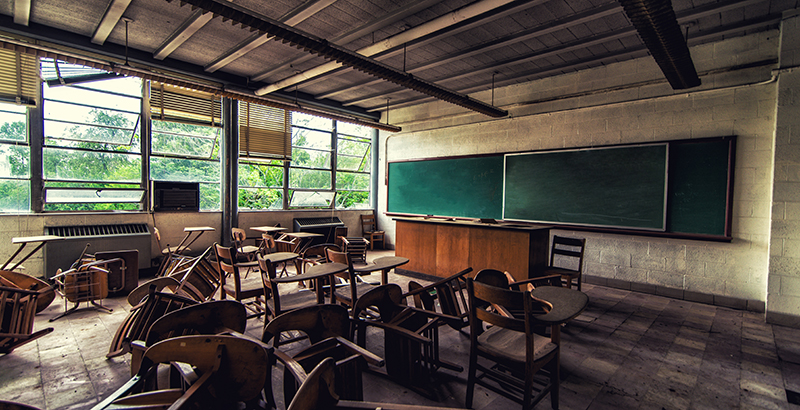
Special Education: At a 2014 ceremony honoring Brett Bigham with Oregon’s Teacher of the Year award, he slouched over in his chair — hoping blood wouldn’t seep through his shirt. Just days earlier, he had endured a brutal beating in his classroom, one that sent him to the hospital. On this occasion, he wrote, a student bit him and whipped him with a television cable. It was far from the first time he endured physical violence or death threats on the job. It wasn’t the first time a classroom injury sent him to the hospital, either. He’s been bitten, punched and kicked. He was hit over the head with a chair so hard he quit teaching for seven years. Bigham’s story is likely an extreme example of the challenges special education teachers face as schools struggle to adequately support children with special needs, like those living with significant trauma or other conditions that affect their ability to regulate behavior. But special education teachers from across the country say they, too, have experienced violence on the job. Read Mark Keierleber’s report.
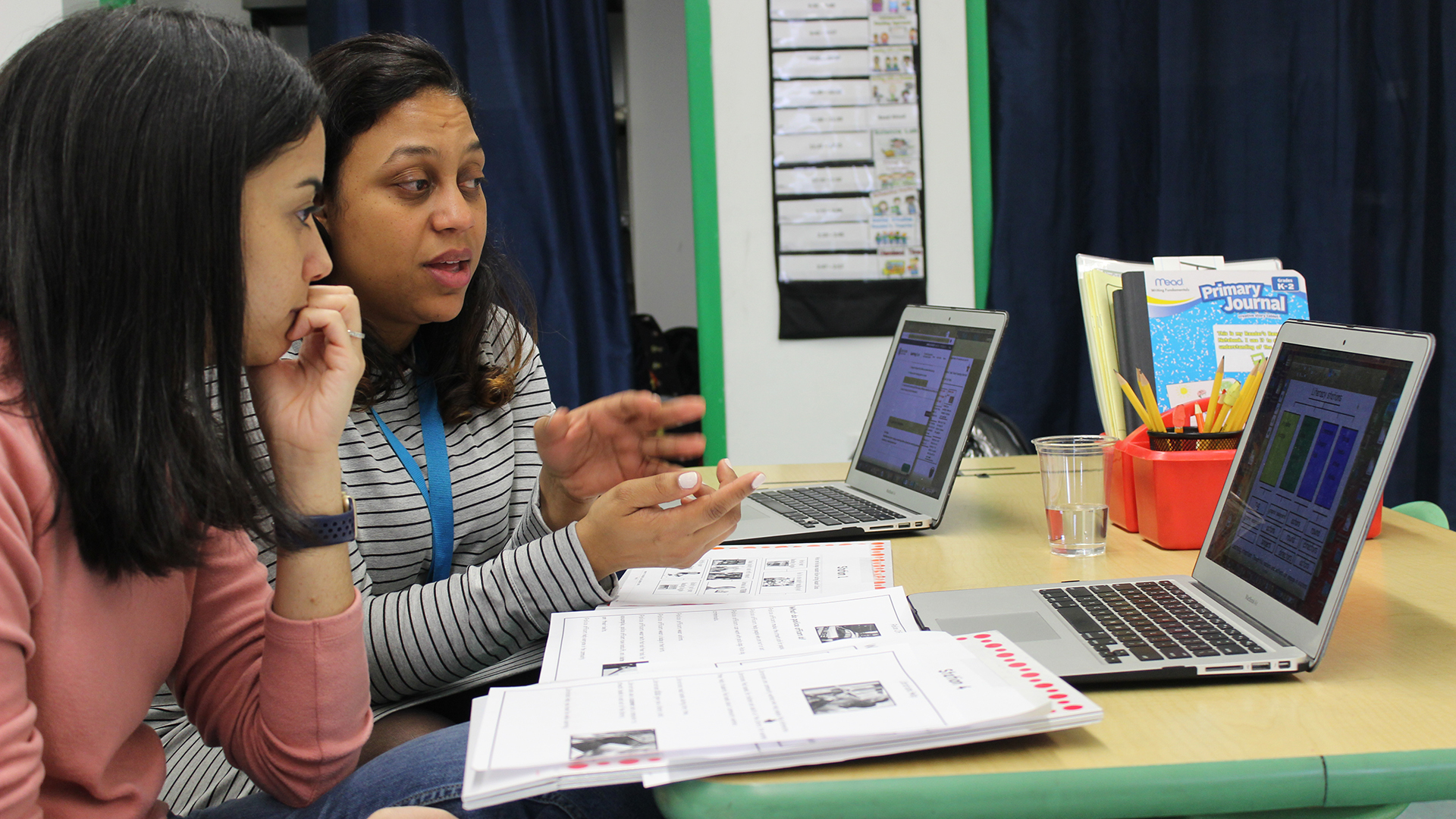
Professional Development: Read about a year in the life of a teacher mentor, and her mentee, in one of America’s poorest school districts. Elisa Espinal had wanted to work with young children since she was a kid. But the school in Brooklyn where she was teaching wasn’t preparing her to be the best she could be. So last year, she transferred to Concourse Village Elementary School in the South Bronx, where students are far outpacing the entire state in achievement even though they live in one of the poorest zip codes in the country. As a kindergarten teacher new to this rigorous, high-needs school, Espinal was assigned a mentor, fifth-grade teacher Ambar Quinones. Teachers with the least experience are often placed with the students who need the most help, which, in the long run, can be a disservice to both the teacher and the children. Mentoring programs are one of the most common methods of support for new teachers in the U.S., but they vary widely in terms of quality.
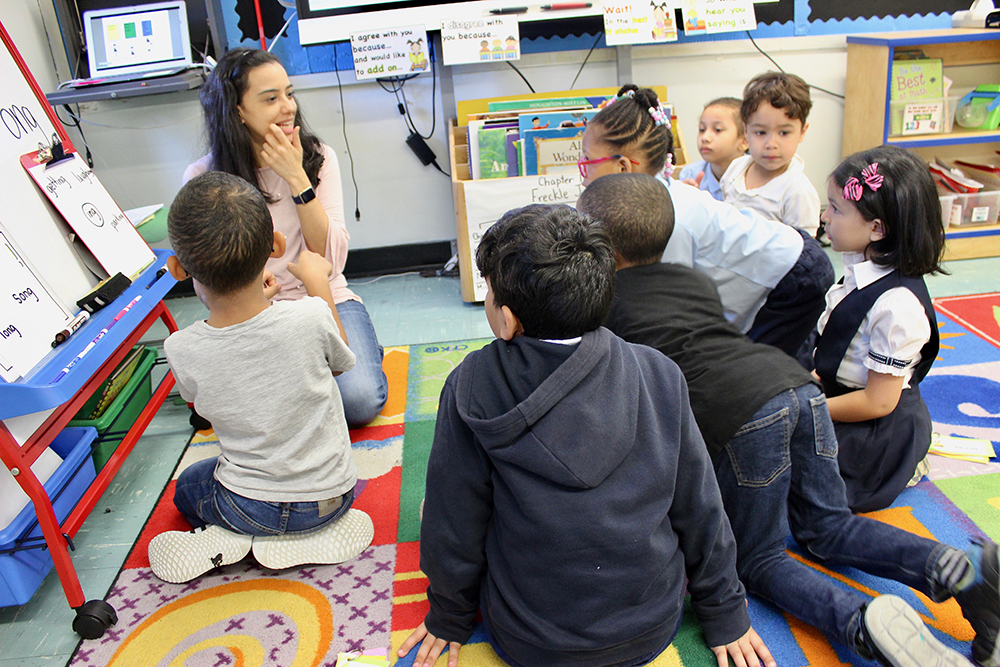
The program Espinal and Quinones are participants in, New Teacher Center, is among the largest and most researched in the country, having impacted 250,000 new teachers, mentors and coaches over the past 20 years. To understand what a rigorous, in-depth mentoring program looks like, and the effect it can have on teachers — and student learning — Kate Stringer spent a full academic year shadowing Espinal and Quinones at their school, watching their professional relationship grow as they devised strategies for dealing with an ever-changing set of challenges. Read more about what she learned.
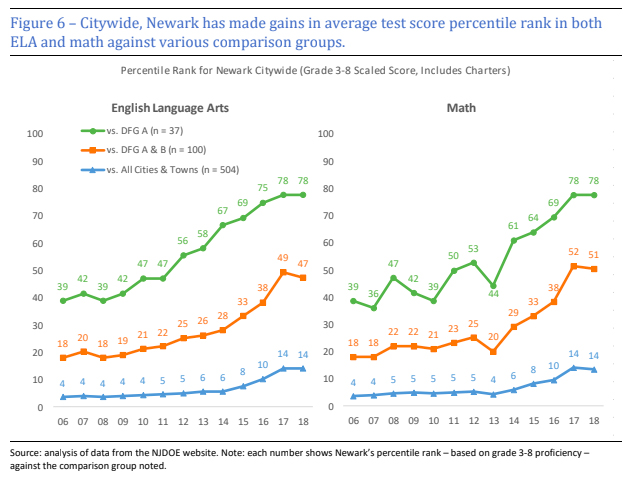
Big Picture: Beginning with the election of Mayor Cory Booker in 2006 — and continuing with a $100 million gift from Mark Zuckerberg in 2010 — Newark adopted some of the most ambitious education reforms in the country. Schools closed, principals were replaced and the city’s charter sector expanded to enroll roughly one-third of all students. Those changes proved contentious, and Booker’s educational legacy has made him a target in a Democratic primary field swiftly moving away from all things education reform. But a study released today shows that academic performance in Newark, at both charter and traditional public schools, has improved significantly over the past 12 years. When compared with low-income areas around the state, and New Jersey schools as a whole, kids in Newark are achieving at a much higher level now than in 2006. Read the full report.
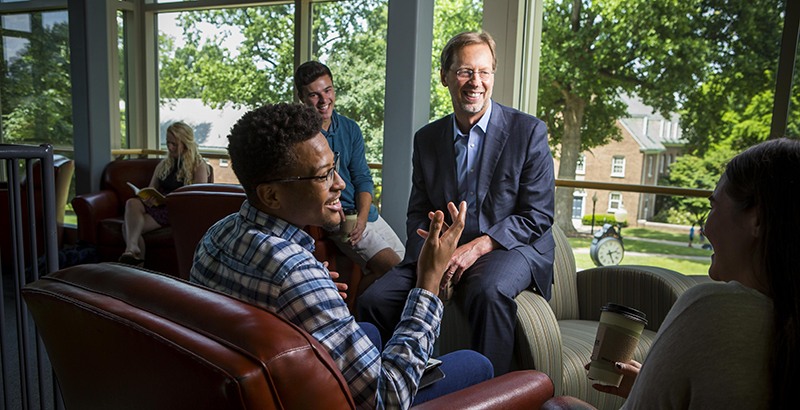
Equity: Dan Porterfield grew up in a white, working-class section of Baltimore where he was the only kid in the neighborhood to attend public school. All the other kids went to Catholic school. When he was 10, a black family moved in — his mother brought them a casserole, the other white neighbors intimidated and harassed them, Porterfield said, and then they turned on his mom when she wouldn’t do the same. It was a lesson he never forgot: “There were two models, and they were crystal clear. One was my mother, who welcomed new members to the neighborhood. The other were people who tried to make them go away. The people who were resistant to integration were not the way I wanted to be.” Decades later, when he became president of Franklin & Marshall, an overwhelmingly white liberal arts college in Lancaster, Pennsylvania, he would put those lessons into practice, recruiting, supporting and successfully graduating many more low-income students of color. Today, Porterfield is president and CEO of The Aspen Institute, where he will likely move “from helping a few thousand first-generation college-goers to helping tens of thousands.” Read the full profile.

Teacher’s Perspective: At the beginning of his teaching career, contributor Joe Roicki didn’t understand the importance of building relationships. He thought his job was to teach content. But over the next 15 years, he realized that his teaching style did little to make his students feel like valued members of a shared learning community, and he began to look for ways to build social skills and positive relationships with and among the kids in his class. Learn some strategies he used for developing social skills in students and creating a strong class culture, and how sharing, helping and teamwork can make a difference in all aspects of learning.
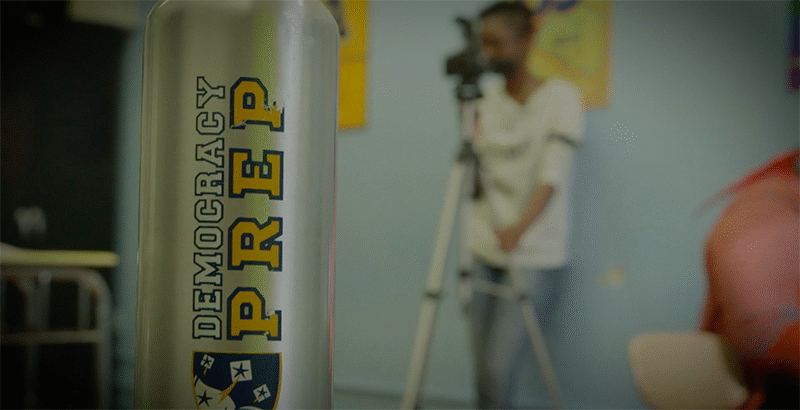
Civics Education: The school motto at Democracy Prep is ambitious: “Work hard. Go to college. Change the world!” The Harlem-based charter network manifests those imperatives most fully in its requirement that all high school seniors complete yearlong capstones, called Change the World projects. Students must identify a social problem, complete a research review into its causes and implement some remedy. This year, a few students are studying mental health in the Democracy Prep community; one is raising funds to distribute hygiene products to homeless women; another is directing her own film to draw attention to the unfairness of the foster care system. But does such work veer into activism? And if so, is that a bad thing? Kevin Mahnken takes a closer look.
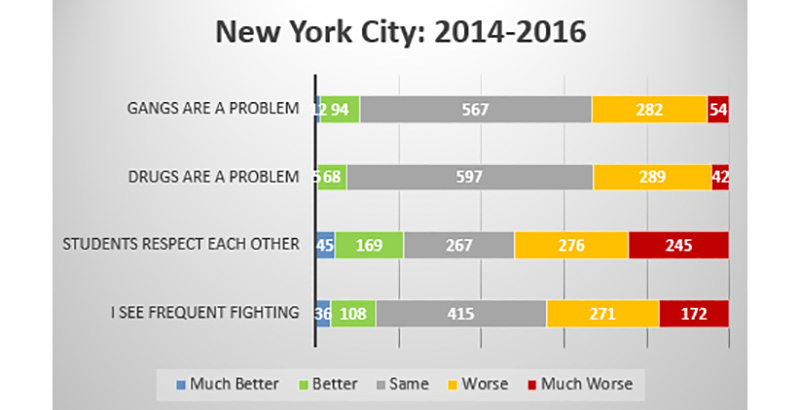
School Safety: Rising student perceptions of violence and disrespect. A troubling upswing in bullying. A dramatic increase in teacher assaults. Across the country, as districts enact fundamental changes to their school disciplinary systems, writes contributor Max Eden, research, and teachers’ own experiences, are confirming increased harm to students’ academic achievement and to school safety. From New York, where a local official warned that students are fleeing city public schools because of chaos in the classroom, to Oregon, where a statewide teacher poll declared a “crisis of disrupted learning,” dig into the data that led Eden to conclude that “limiting suspensions and implementing so-called restorative justice may be doing more harm than good.” Read the full analysis.
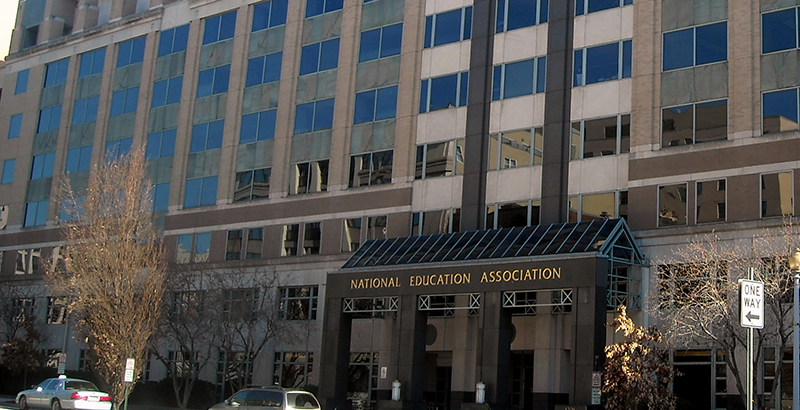
Union Report: Every year, the National Education Association produces a report telling delegates to its national convention how it spent the $8 of each member’s dues money that goes to the union’s media fund. The general purpose of the fund’s media campaigns is “to advance the cause of public education and publicize the role of the association and its affiliates in improving the quality of public education.” So how was the money spent this past year? From #RedForEd and “inoculations projects” to Dr. Seuss and Harvey Weinstein, find out in this new edition of Union Report.
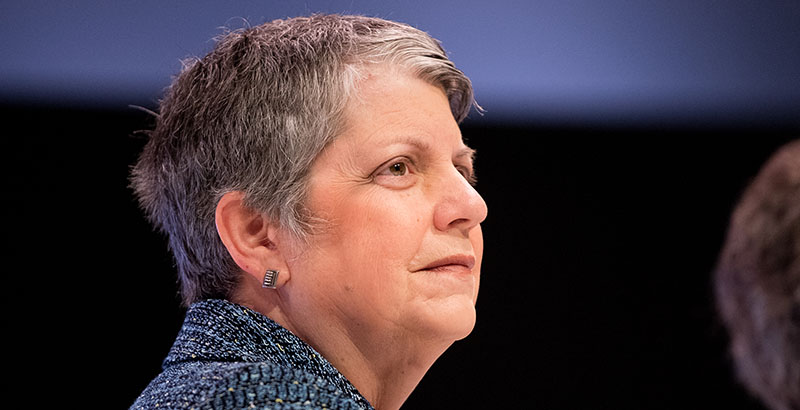
74 Interview: In the United States, roughly 43 million people have outstanding student loan debt, totaling nearly $1.6 trillion. Such a startling burden raises a big question: Is the high price of college worth it? For University of California President Janet Napolitano, who previously served as secretary of homeland security, the answer is a resounding yes. For her, it comes down to simple economics: College graduates tend to earn more money over the course of their working lives. Mark Keierleber caught up with Napolitano to discuss a range of hot-button issues, from the college admissions scandal to campus sexual misconduct. On the value of college, she pointed to its crucial role in social mobility. “The one tried-and-true tactic that has worked over American history,” she said, “is access to a quality public higher education.” Read the full interview.
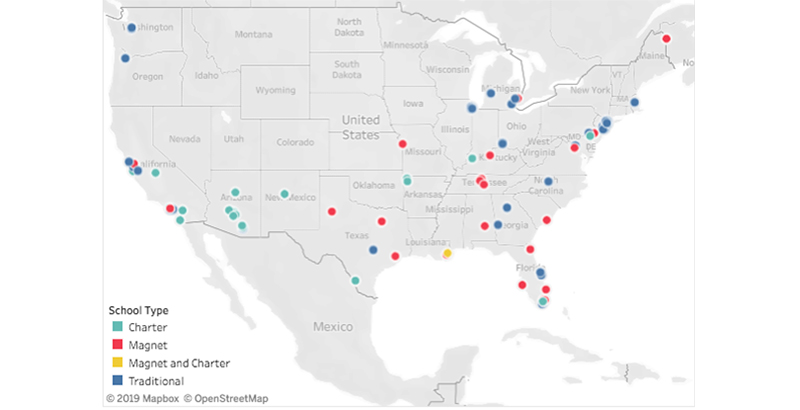
U.S. News Shakes Up Its National High School Rankings — 5 Things to Know About What’s Changed
School Rankings: The well-known list of “America’s Best High Schools” by U.S. News has historically ranked only the highest-performing public schools in the country. But this year, the site has reworked its process and opened the elite list to thousands more schools. The new rankings consider a much wider array of criteria, including state assessment performance for black and Latino students and graduation rates. For critics of the list, the changes don’t go far enough in acknowledging how some schools still face systemic barriers, but the changes do mark a significant shift in how U.S. News values school and student success. Read the full summary.
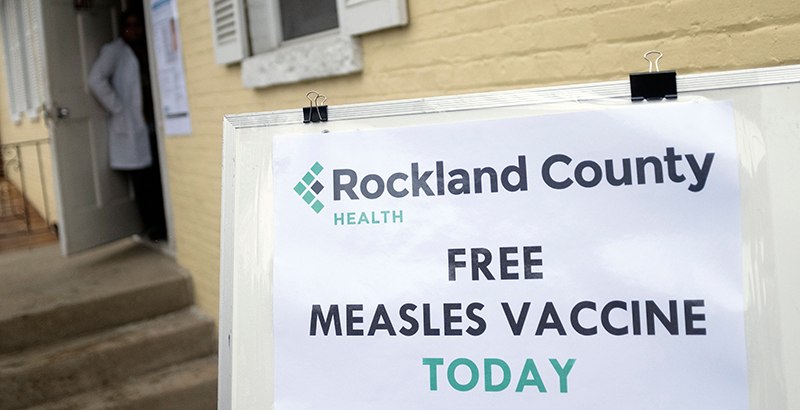
Student Health: Amid the worst measles outbreak the United States has experienced in more than two decades, lawmakers in a handful of states are looking for ways to make sure kids get the shots they need before enrolling in school. New York this month ended all nonmedical exemptions for the required immunizations, and Maine recently did the same. Meanwhile, California, which put strict rules in place after a 2014 outbreak, is considering making its policies governing medical exemptions even more restrictive, a move that actress Jessica Biel spoke out against. With more than 1,000 cases reported so far this year, the CDC warns that the United States is in danger of losing its status as a country that’s eliminated measles. Laura Fay recaps how state lawmakers are reacting.
Get stories like these delivered straight to your inbox. Sign up for The 74 Newsletter

;)